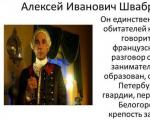Thoughts in a million. "Only two things are infinite: the universe and human stupidity
Wise Thoughts
(March 14, 1879, Ulm, Württemberg, Germany - April 18, 1955, Princeton, New Jersey, USA)
One of the founders of modern theoretical physics, winner of the Nobel Prize in Physics in 1921, public figure and humanist. Lived in Germany (1879-1893, 1914-1933), Switzerland (1893-1914) and the USA (1933-1955). Honorary doctor of about 20 leading universities in the world, a member of many Academies of Sciences, including a foreign honorary member of the USSR Academy of Sciences (1926).
Quote: 1 - 17 of 176
Only the Universe and human stupidity are infinite, at the same time, I have doubts about the infinity of the first of them.
Only the Universe and human stupidity are infinite. Although I have doubts about the first one.
It's pointless to keep doing the same and wait for other results.
Due to the fact that today the theory of relativity satisfies the tastes of readers, in Germany they call me a German scientist, and in England I am a Swiss Jew. If it comes to my denigration, then the characteristics will change places, and for Germany I will become a Swiss Jew, and for England - a German scientist.
Opportunity hides in the midst of difficulties and problems.
God is a gaseous vertebrate.
God does not play dice.
God is cunning but not malicious. (Optional: God is sophisticated, but not malicious. Another saying: Maybe God is malicious after all. Note: This saying is carved over the fireplace in the building of the Mathematical Institute at Princeton University. Einstein's additional explanation: "Nature hides her secrets due to her inherent height and not by tricks.")
Later version:“If the theory of relativity is confirmed, then the Germans will say that I am a German, and the French that I am a citizen of the world; but if my theory is refuted, the French will declare me a German, and the Germans a Jew.
Big mistake to think that a sense of duty and compulsion can contribute to finding joy in looking and seeking.
Marriage is an attempt to create something solid and lasting from a random episode.
This world was shrouded in eternal darkness
"Let there be light!" And here comes Newton. - Epitaph on Newton's grave (Alexander Pope)
... But Satan did not wait long for revenge -
Einstein came, and everything was as before. - Comic "addition" to it
There is always an element of poetry in scientific thinking. real science and real music require a uniform thought process.
In my imagination, I am free to draw like an artist. Imagination is more important than knowledge. Knowledge is limited. Imagination covers the whole world.
In accordance with the idea of general relativity of the concept of space, devoid of any physical content does not exist.
Only two things are infinite, the universe and human stupidity, and I "m not sure about the former.
There are only two infinite things: the universe and stupidity. Although I'm not sure about the universe.
(Two things are infinite: the universe and human stupidity; and I'm not sure about the universe yet.)
Paulo Coelho. Alchemist
When you really want something, the whole Universe will contribute to your desire came true.
Highway 60 (Interstate 60)
There is such a theory: the Universe and time are infinite, which means that any event is inevitable, even impossible.
Mind Games (A Beautiful Mind)
Tell me, is the universe big?
- Endless...
- How do you know?
- All the data points to it.
- But this is not proven, you yourself did not see it? Why are you sure?
- I'm not sure, I believe.
Same with love...
Douglas Adams. The Hitchhiker's Guide to the Galaxy
Do you know how the universe came into being?
- No.
- Imagine that you have a bath. Large round tub. From ebony. Conical shape.
- Why conical?
- Shh, shut up. Conical bath. You fill it with fine sand. Or sugar. And then you take out the cork - are you listening to me?
- I'm listening.
- You take out the cork, and the whole thing goes through the drain.
- It's clear.
- You don't understand a damn thing. I haven't gotten to the bottom of it yet. Do you want to hear the essence?
- Want.
- So listen. Imagine that you are making a film about how this happens. How sugar goes. You have a camera and you are filming.
- Is that the point?
- Not yet. And then you put the film through the projector - back. That's the point.
- Back?
- Yes. Reverse- that's the point. And you sit and watch the sand flow through the drain and fill the tub. It's clear?
Are you saying that this is how the universe began?
- No. I want to say that this is a great way to relax.
Mr. Nobody (Mr. Nobody)
What happened before the big bang? The fact is that there was no "before". Before the big bang, time did not exist. The birth of time is the result of the expansion of the universe. But what will happen when the universe stops expanding and the movement starts to reverse side? What then will be the nature of time? If string theory is correct, the universe has nine spatial dimensions and one time dimension. It can be assumed that in the beginning all dimensions were intertwined. And after the big bang, three known to us stood out - height, width and depth. And another time dimension, known to us as time. The other six were left in a rudimentary and twisted state. If we live in a world of twisted dimensions, how do we distinguish illusion from reality? We are used to the fact that time only moves in one direction. But what if one of the other dimensions is not spatial but temporal?
Futurama
The universe is in each of us...
Douglas Adams. Restaurant "At the End of the Universe"
There is a hypothesis that at the moment when someone comprehends true purpose Universe and the reasons for its existence, it will immediately disappear, and in its place something even more strange and inexplicable will arise.
There is another hypothesis that says that this has already happened.
"Only two things are infinite: the universe and human stupidity. About the universe, I'm not sure." March 14 is the birthday of Albert Einstein (1879-1955) 20 leading universities in the world..." Found on the Internet entertaining facts from his life If not for friends, Einstein would have ended his days working somewhere as a music teacher, fortunately in his youth he played the violin and piano well. The most mysterious thing in the world is human genius. Of all the geniuses, the most mysterious is Albert Einstein. His personal life is a tangled tangle of passions, carefully hidden by scientists under the guise of a good-natured man busy with numbers. One day, looking New film Chaplin, Albert said to his friend: “Now I understand why you great person. Your film is understandable to absolutely all people - even cretins. After hearing such a flattering review, Chaplin grinned and replied: “I admire you even more. No one in the world understands your theory of relativity, and yet you have become a great man.” However, Albert's path to recognition was not at all easy. Einstein's university teacher once remarked to Albert: "Young men gifted with such intelligence and knowledge grow stupid in old age." Albert replied: "Professor, you must have been the most gifted among your peers in your youth." Albert's wit prevented him from getting a good position. At one time he worked as a physics teacher at school, but he was expelled from there because he did not study according to the program. Then he tried to give private lessons, and soon he was also refused a place. The powerful intellect of Einstein was absolutely not needed by mankind. As a result, Albert, through an acquaintance, was placed in the Bern patent office as a junior clerk. City lunatics resorted to him daily, claiming that they had invented a "perpetual motion machine". Einstein once exclaimed: “There are only two infinite things: the universe and stupidity. Although I'm not entirely sure about the universe." Einstein was constantly written about. There was not a day when the famous scientist did not pose for some glossy magazine. When unfamiliar people when they asked him what he was doing now, Albert invariably answered: “I work as a model.” Like any famous scientist, Einstein traveled a lot, giving popular lectures on the theory of relativity. On the road he was accompanied by a driver. Somehow, after the eighth performance, he suddenly remarked to his “passenger”: “I have heard about your theory of relativity so many times that I can tell the public about it just as well.” Hearing this brazen statement, Einstein invited him to speak in his place. The driver took Albert's jacket and gave the scientist his driver's jacket. The little one really turned out to be endowed with an excellent memory. He repeated Einstein's lecture almost verbatim to the public, so that no one had a shadow of a doubt that they were being played. Only at the end of the lecture did a wizened old man, a local physics teacher, get up from his seat and ask some very difficult question, the meaning of which the driver did not even understand. Exposure and disgrace were inevitable. The driver thought for a minute, as if collecting his thoughts, and suddenly said: “Actually, the question is so simple that even my driver, who is sitting in this hall in the back row, could answer it. Let's give him the floor." Before the eyes of the astonished audience, "Einstein's driver" got up and smartly explained the problem to the corrosive old man. Fantastic rumors spread all over America about Einstein's entourage. And once, in response to a request to portray thinking process he stuck out his tongue. Thus, the most famous photograph of a scientist was born, which completely turned the idea of \u200b\u200bhis seriousness.
There are two infinite things in the world: the Universe and human stupidity.
Although I still doubt about the Universe. ~ A. Einstein
(An article by renowned economist Carlo Cipolla on the nature of stupidity.)
***
The Italian historian-economist approached this issue very thoroughly. Long years research led the scientist to the fact that he formulated five universal laws working in any society. It turned out that stupidity in itself is much more dangerous than we used to think about it. We recommend that you read this article for preventive purposes.
✔ First law of stupidity:
A person always underestimates the number of idiots that surround him.
It sounds like a blurry banality and snobbery, but life proves its truth. No matter how you evaluate people, you will constantly encounter situations in which a person who always seemed smart and rational turns out to be just an incredible idiot.
✔ Second law of stupidity:
The probability that a person is stupid does not depend on his other qualities.
Everyone likes to think that all people came off the assembly line in some technologically advanced factory equal, and if one of them is more equal than others, then this is due to education, not his nature. But years of observation and experience confirmed me in the thought that people are not equal; some are stupid, others are not, and this quality is laid down by nature, and not by cultural factors. A person is a fool in the same way that he is red or has the first blood group. He was born that way by the will of Providence, if you like.
Education has nothing to do with the probability of having a certain number of fools in a society. Here nature has outdone itself. This was confirmed by numerous experiments at universities on five groups: students, office workers, service personnel, administrative staff and teachers. When I analyzed a group of low-skilled employees, the number of fools turned out to be greater than I expected, and I wrote it off as social conditions: poverty, segregation, lack of education. But moving up the social ladder, I saw the same ratio among white-collar workers and students. Even more impressive was to see the same number among professors—whether I took a small provincial college or a large university, the same proportion of professors turned out to be fools. I was so amazed by the results that I decided to experiment on the intellectual elite, the Nobel laureates. The result confirmed the superpowers of nature: the same certain number of winners were stupid.
The idea that the Second Law expresses is difficult to accept, but numerous experiments confirm its reinforced concrete correctness. The conclusions of the Second Law are frightening: whether you move into British high society or move to Polynesia and befriend the local bounty hunters, you will have to deal with the same number of idiots everywhere.
✔ The third law of stupidity:
A fool is a person whose actions lead to losses for others, and at the same time do not benefit himself or even turn out to be harmful to him.
The third law assumes that all people are divided into 4 groups:
- simpletons (if Petya takes an action, from which he himself suffers losses, but at the same time brings benefits to Vasya, then Petya belongs to simpletons - P),
- wise men (if Petya does something that benefits both him and Vasya, he is a wise guy - U),
- bandits (if Petya's actions benefit him, and Vasya suffers from them, then Petya is a bandit: B)
- fools (no one benefits from Petya's actions, or he causes damage to everyone).
It is not difficult to imagine the extent of the damage that fools can do when they get into the governing bodies and have political and social powers. But it is worth clarifying separately what exactly makes a fool dangerous. Foolish people dangerous because rational people can hardly imagine the logic of unreasonable behavior. Clever man is able to understand the logic of the bandit, because the bandit is rational - he just wants to get more benefits without applying special efforts for earnings. The bandit is predictable, so you can build a defense against him. It is impossible to predict the actions of a fool, he will harm you for no reason, without purpose, without a plan, and in the very unexpected place. The fool's attack takes him by surprise. It is difficult to defend against it, because it does not have a rational structure. This is what Schiller wrote about: "Even the gods are powerless against stupidity."
✔ The fourth law of stupidity:
Non-fools always underestimate the destructive potential of fools.
In particular, non-stupid people constantly forget that dealing with a fool under any circumstances is a mistake. In the presence of a fool, they relax and enjoy their intellectual superiority, instead of urgently mobilizing and minimizing damage when a fool does something.
A common stereotype is that a fool only harms himself. No. Do not confuse fools with helpless simpletons. Do not enter into an alliance with fools, imagining that you can use them for your own benefit - if you do, then it is obvious that you do not understand the nature of stupidity.
✔ The fifth law of stupidity:
The fool is the most dangerous personality type.
Corollary: A fool is more dangerous than a bandit. The result of the actions of an ideal bandit is a simple transfer of goods from one person to another. Society as a whole is neither cold nor hot from this. If all members of this society were ideal bandits, it would quietly rot, but the catastrophe would not have happened. The whole system would be reduced to the transfer of wealth in favor of those who undertake for the sake of this action, and since everyone would be ideal bandits, the system would enjoy stability. This is easy to see in any country where the authorities are corrupt, and citizens constantly circumvent the laws. When fools enter the scene, the picture changes completely. They deal damage without benefiting. Wealth is destroyed, society is impoverished.
History confirms that in any period a country progresses when there are enough in power. smart people to keep active fools from destroying what smart people have produced. There are just as many fools in a regressing country, but among the top there is an increase in the proportion of stupid bandits, and among the rest of the population - naive simpletons. Such a change of alignment invariably increases the consequences of the actions of fools, and the whole country is going to hell.
Irrelevant Einstein
Best quotes from Albert Einstein:
Only the Universe and human stupidity are infinite. Although I have doubts about the first one.
In my youth I discovered that thumb feet sooner or later makes a hole in the sock. So I stopped wearing socks.
Imagination is more important than knowledge. Knowledge is limited while imagination embraces the whole world, stimulating progress, generating evolution.
Everything is very simple. All people think that this is impossible. But there is one daredevil who does not agree with this ...
Dostoevsky gives me more than any scientific thinker, more than Gauss.
Only the life that is lived for the sake of other people is worthy.
The only reason for the existence of time is so that everything does not happen at the same time.
If I knew that in three hours I must die, it would not make a great impression on me. I would think about how best to use these three hours.
If you want to lead happy life, you must be attached to the goal, not to people or things.
The life of an individual person is meaningful only to the extent that it helps to make the lives of other people more beautiful and nobler. Life is sacred; it is, so to speak, the supreme value to which all other values are subordinate.
Common sense is the sum of prejudices acquired before the age of eighteen.
Why should I memorize something when I can easily look it up in a book.
Nothing of value can be born out of ambition or a sense of duty. Values arise due to love and devotion to people and the objective realities of this world.
The true value of a person is determined by how much he has freed himself from egoism and by what means he has achieved this.
There is only one path to greatness, and that path is through suffering.
Each person is obliged, at least, to return to the world as much as he took from it.
When a blind bug crawls along the plane of the ball, it does not notice that the path it is making is curved. I managed to notice it.
Mathematics is the most perfect way to lead oneself by the nose.
The world cannot be held by force. It can only be reached by understanding.
Little knowledge is a dangerous thing, however, as well as great.
The real progress of mankind depends not so much on the inventive mind as on consciousness.
Nationalism is a childhood disease. This is the measles of humanity.
No amount of experimentation can prove a theory; but one experiment is enough to refute it.
Morality is the basis of all human values.
The liberated energy of the atomic nucleus has called into question many things, including our way of thinking. If man is still unable to think in a new way, we will inevitably move towards an unprecedented catastrophe.
Order is necessary for fools, while genius rules over chaos.



